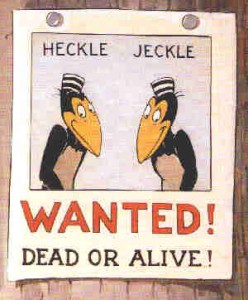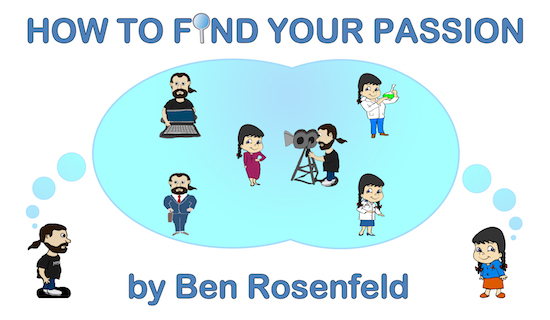
A year ago, a reader asked me how I address heckling. At that point, I hadn’t been heckled nearly enough times to have an opinion or technique on the subject. “Luckily” I’ve been heckled plenty of times over this past year, so now I have some thoughts on the subject.
Different Kinds of Heckling
To start, I like to differentiate between five different kinds of heckling, the first four of which could be considered more of an “interruption” than a “heckle”:
- Someone responds to your jokes by saying something out loud that they think is helpful to the joke (but almost always isn’t)
- Someone doesn’t realize your statement or question was rhetorical and that they weren’t supposed to actually answer it
- Someone says “Jesus Christ” or something like that when you do a meaner or edgier joke
- Someone is drunk and just yelling out sounds or words that don’t make any sense
- Someone yells out “you suck”, “I’m funnier than you”, etc. This is what most people think of when you mention hecklers.
I’ve had the first 4 kinds happen quite often but have never gotten into #5 with an audience member. (When I’m doing poorly, the audience just stays quiet.) Realizing what kind of heckle you’re dealing with will help you respond to it better.
Here’s what I’ve found to be the best response to each of the five kinds of heckles.
- Acknowledge their suggestion and either riff off of it, say something witty or say something standard (see below)
- After you acknowledge the comment, take shorter pauses than usual between lines and jokes for the rest of the set. Some audiences are more A.D.D. than others and can’t handle any silence, especially if it’s right after a question.
- If this happens once, you can smile and move on without really addressing it. A stronger move is to admit “You’re right, that’s bad” and then say something even more offensive. Showing the audience you understand you’re crossing the line, and then crossing it even more causes a laugh because going further after apologizing isn’t expected. If you get the “Jesus Christ” a second time, then make sure to admit the audience is right, and then take the joke even further. I have whole jokes (suicidal girls and the morning after pill, in particular) that are written with this dynamic in mind.
- Admit to being genuinely confused about the sound, maybe even mimic the sound, but don’t give them time to respond. If they do respond, it’s usually so nonsensical you can just laugh or stare at them and then move on without another response. You can always make a comment about them needing another drink too. The key here is to get back to your material ASAP. The audience tends to tolerate these kinds of heckles less than any other, so you can ignore it after the first time.
- Try to be agreeable while one upping them. Don’t resort to insulting them unless they’ve yelled out negative stuff more than once.
General Heckling Techniques
I’ve found the first key to a heckler not derailing your set is to address the situation as soon as someone says something. If you acknowledge the situation and respond with something that isn’t too mean the first time, they’ll usually stop. The reason not to get mean the first time is because a lot of times the person (and rest of the audience) thinks they’re just being helpful (heckle #1) and doesn’t understand why you went from zero to asshole. If you don’t have a witty in-the-moment response something like “Thank you for your opinion sir, I can take it from here” or “Ok, no more alcohol for that one” usually works for the first interruption.
If you ignore the first comment, then they’ll almost certainly say something else. Plus the audience starts wondering why you haven’t responded to the comment and while they’re thinking about that, they stop listening to you and your next joke. If you respond to the interruption and the audience member says something again, try to not respond directly. Stare at them for a second or two and then say “annnnnd back to me” or just a “that’s nice.” I don’t suggest getting mean, calling the audience member names or telling them to shut up until they interrupt for a third time.
Also, keep in mind that some audiences are just talkative and want you to talk and interact with them instead of just listening to you do material. This isn’t really “heckling,” this is crowd work, even if you’re not the one who decided to start it. When you’re trying to work on new material having to spend time talking to the audience can get annoying but you just gotta go with it. It’s also important to make it seem like the interruptions are “fun” and don’t bother you.
Another tip is to use the improv rule of “yes and” to agree with whatever the audience member says and then add some additional information. This usually works because you don’t want to seem defensive. Even something like, “You suck” can be turned into “Yes, I do suck. And you can’t afford me. Why are you propositioning me anyway?”
To add to the all variables, it makes a big difference if the heckling / interrupting has been going on the whole show before you get on stage or if it’s just the audience’s reaction to your material.
Of course, heckling is just like with the rest of stand up, you can only really learn how to respond by doing it. It still helps to read, ask questions and be prepared, but you need the actual game reps before you really know how to respond. I’m sure my tips will be different and hopefully better a year from now after I get even more reps.
War Stories
I have a feeling a lot of people reading this are less interested in techniques and more interested in “war stories” so here we go.
- I had one show where there were four drunk girls who interrupted EVERY comedian. The first two or three comics, the audience was enjoying the girls getting ripped apart. (They were constantly interrupting, so the “third interruption” rule kicked in within a minute of the first comic being on stage. After the third comic, the rest of the audience started getting pissed at the comics for not ignoring the girls because they wanted to hear actual jokes. By the time I got up there as the 10th comic, I knew to address the girls once and then ignore them. Doing this got other people in the audience to yell “shut up” at the girls while I was talking.
- I was doing a bar show, and in the middle of one of my jokes, someone yells out to me, “show us your tits!” Without stopping my joke, I pull up my shirt and flash them, then hit my punch line. Sometimes it’s easier to just go with the flow. (Although thinking back on it, after my punch line, I should’ve said, “The first sample was free, next time, I better see some bills flying.”)
- Three girls dressed in super tight, really short skirts came in and sat down in the front row when the comic before me was on stage. He proceeded to get them to make out with each other and fondled them (this was a bar show, this doesn’t usually happen in comedy clubs). I get up there and go, “I could be Jerry Seinfeld right now and everyone would rather watch them make out than to hear my jokes.” Which actually got the audience to start listening to my jokes. Until the girls didn’t realize my questions were rhetorical and started interrupting…
- The comic before me was doing so badly someone in the audience yelled out “Next!” over and over again. The comic then ran his light in order to argue with and insult the audience member. This got ugly and made the room weird. I get up there and say “Well looks like you got your wish.”
- Aadip recently told me he struggled with a heckler his whole set until he finally told the crowd, “Congratulations, you’ve finally met someone who’s actually inbred.” This funny but mean comment worked because the guy kept talking so the audience was on the comic’s side. If the Aadip had said that same comment when the heckler said his first comment, the audience may not have been with him (unless the same audience member had been heckling other comics before him too).
Wanna try stand-up comedy yourself? I teach a Comedy Class in NYC. I also do private one-on-one comedy coaching (in-person or via Zoom).
More Stand-Up Comedy Tips:
- 10 Steps to Become a Great MC
- 3 Tips To Planning A Successful Comedy Show
- Are Any Topics Off Limits?
- Barking Tips
- Dealing With Hecklers
- Five Tips For Your Comedy Event To Run Smoothly
- How I Got 100,000 TikTok Followers In 51 Days
- How To Make Money In Comedy
- How To Put Together A Great College Comedy Show
- How To Record Your Own Comedy Album
- How To Self Publish A Book Through Kickstarter
- My Writing Process
- Not Connecting With The Audience?
- Organizing Jokes
- Overcoming Stage Fright
- Producing a Show: Getting Audience
- Producing a Show: Running The Show
- Producing a Show: The Comics
- Producing a Show: The Venue
- Ten Tips To Succeed During a Check Spot
- The 8 Different Types of Comedy Audiences
- The Pecking Order
- Treat It Like a Job
- Types of Shows for Beginners
- Types of Spots
- What To Do When Nobody Laughs
- Your First Stand Up Performance


